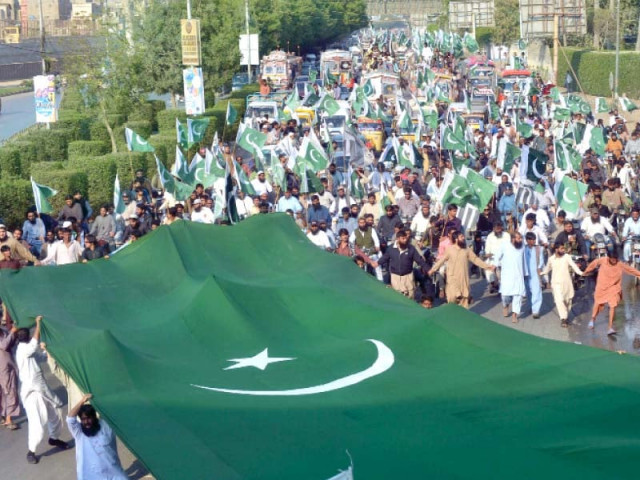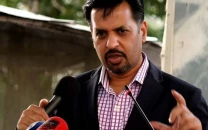Kashmiris observe Right to Self Determination day
Kashmiri-Americans say plebiscite only solution

Kashmiris on both sides of the Line of Control (LoC) and across the globe observed January 5 as the Right to Self-Determination Day, pledging to continue their struggle for freedom through a plebiscite as guaranteed by the United Nations.
According to Kashmir Media Service on Sunday, the observance commemorates the United Nations Security Council resolution passed on this day in 1949, affirming the Kashmiris' right to decide their future through a UN-sponsored plebiscite.
Events including rallies, seminars, and conferences were held worldwide to remind the UN of its responsibility to implement its resolutions and alleviate the suffering of Kashmiris enduring Indian oppression for decades.
The All Parties Hurriyat Conference (APHC) urged the global community, particularly the United Nations, to fulfill its promise to allow the Kashmiri people to exercise their inalienable right to self-determination.
The statement highlights the worsening situation in Indian illegally occupied Jammu and Kashmir (IIOJ&K), where the BJP-led Indian regime has intensified state terrorism since August 5, 2019. Arbitrary arrests, economic hardships, and denial of basic rights have plunged the region into despair.
The APHC appealed to the international community to halt the ongoing genocide of Kashmiris and press India to resolve the dispute in accordance with UN resolutions.
Meanwhile, Washington-based Kashmiri-American scholar Prof Dr Imtiaz Khan said that a plebiscite under United Nations supervision to determine the future of Jammu and Kashmir was the only solution to the lingering conflict in the South Asian region, said a message received from the US here on Sunday.
On the occasion of the Kashmiris' 'Right to Self-Determination Day', Dr Khan said that UN resolution on Kashmir was never implemented, which had a lasting impact on the political and diplomatic discourse surrounding the dispute.
"On January 5, 1949, the United Nations passed a resolution regarding the Kashmir conflict, which became a significant milestone in the ongoing dispute between India and Pakistan over the region of Jammu and Kashmir," he stated.
"The region surrounded by three nuclear powers remains the most militarised zone in the world. The potential of nuclear conflagration that could engulf almost half of the world population remains reasonably high," he warned.
World Kashmir Awareness Forum President and Kashmiri Diaspora Coalition Chairman Dr Ghulam N Mir, said that peace in South Asia would remain elusive and a distant dream as long as India refused to accept its culpability in defying the implementation of multiple UN-mandated resolutions for plebiscite.
World Forum for Peace & Justice Chairman Dr Ghulam Nabi Fai said that the denial of self-determination had brought death, destruction, and devastation to the people of Kashmir. "Today, Kashmir is at the brink of genocide, and Kashmir has become the hell for the people of Kashmir," he added.
Sardar Shoaib Irshad, the general secretary of the Kashmir American Welfare Association (KAWA), said that the people of Kashmir hoped that UN Secretary-General Antonio Gutters would influence both India and Pakistan to initiate a peace process, which would also involve the people of Kashmir.
Sardar Zubair Khan, a leader of KAWA, appealed to Gutters to appoint a special envoy on Kashmir who could assess the situation in Jammu and Kashmir and report back to the Security Council about its findings.



















COMMENTS
Comments are moderated and generally will be posted if they are on-topic and not abusive.
For more information, please see our Comments FAQ